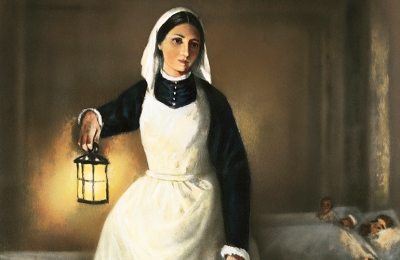
Florence Nightingale (12 May 1820 – 13 August 1910) an English social reformer considered the founder of modern nursing. While serving as a nurse during the Crimean War, where she tended to wounded soldiers, she was dubbed The Lady with the Lamp’ after her habit of making rounds at night. Her birth anniversary is celebrated as International Nurses Day.
Nightingale improved the health of households through her most famous publication, Notes on Nursing: What It Is and What It Is Not, which provided direction on how to manage the sick. This volume has been in continuous publication worldwide since 1859. Additional reforms were financed through the Nightingale Fund, and a school for the education of midwives was established at King’s College Hospital in 1862. Believing that the most important location for the care of the sick was in the home, she established training for district nursing, which was aimed at improving the health of the poor and vulnerable. A second Royal Commission examined the health of India, resulting in major environmental reform, again based on Nightingale’s statistical data.
Florence Nightingale was honoured in her lifetime by receiving the title of Lady of Grace of the Order of St. John of Jerusalem and by becoming the first woman to receive the Order of Merit. On her death in 1910, at Nightingale’s prior request, her family declined the offer of a state funeral and burial in Westminster Abbey. Instead, she was honoured with a memorial service at St. Paul’s Cathedral, London. Her burial is in the family plot in St. Margaret’s Church, East Wellow, Hampshire.
Credit : Britannica
Picture Credit : Google




